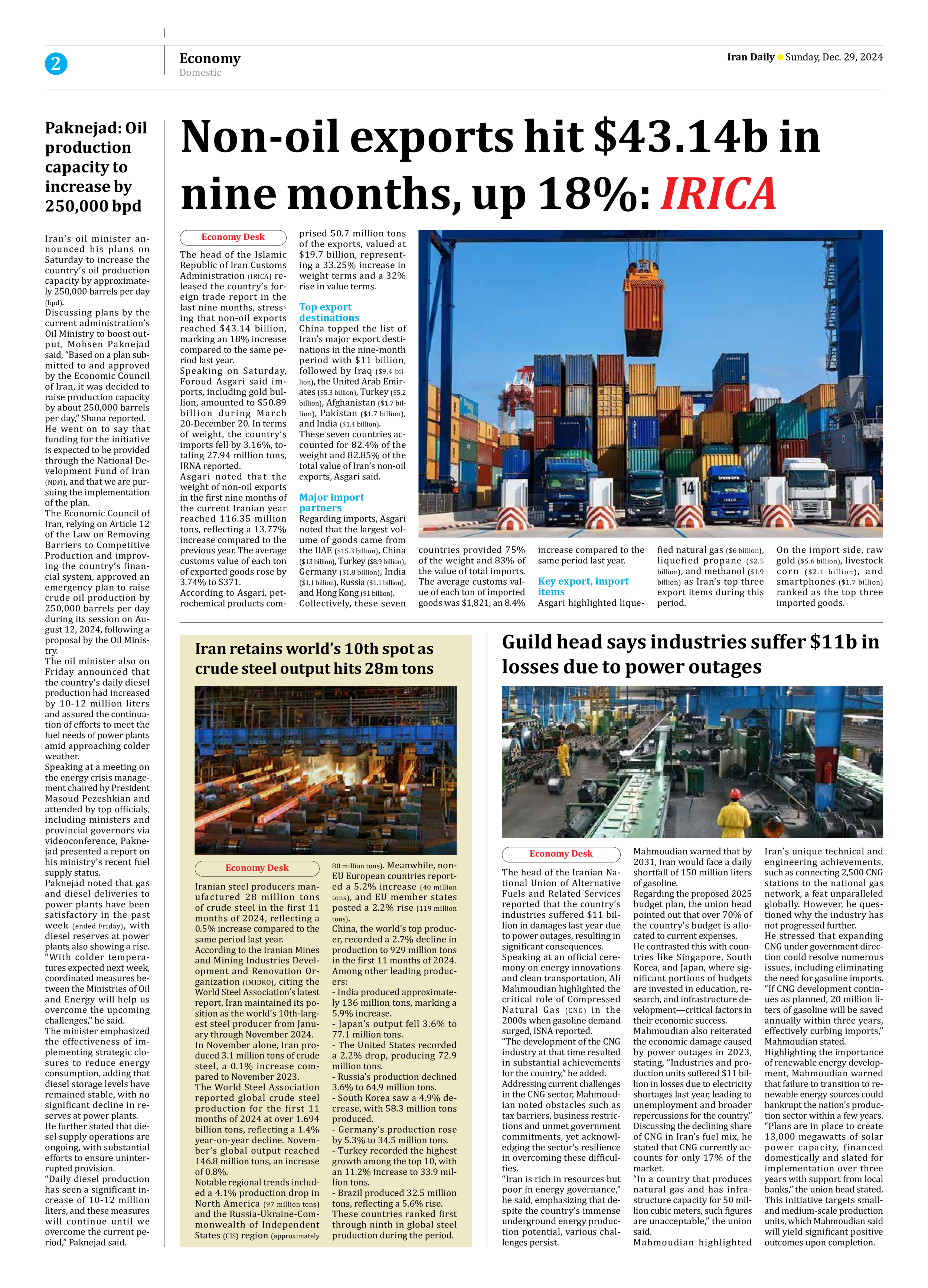
Guild head says industries suffer $11b in losses due to power outages
The head of the Iranian National Union of Alternative Fuels and Related Services reported that the country’s industries suffered $11 billion in damages last year due to power outages, resulting in significant consequences.
Speaking at an official ceremony on energy innovations and clean transportation, Ali Mahmoudian highlighted the critical role of Compressed Natural Gas (CNG) in the 2000s when gasoline demand surged, ISNA reported.
“The development of the CNG industry at that time resulted in substantial achievements for the country,” he added.
Addressing current challenges in the CNG sector, Mahmoudian noted obstacles such as tax barriers, business restrictions and unmet government commitments, yet acknowledging the sector’s resilience in overcoming these difficulties.
“Iran is rich in resources but poor in energy governance,” he said, emphasizing that despite the country’s immense underground energy production potential, various challenges persist.
Mahmoudian warned that by 2031, Iran would face a daily shortfall of 150 million liters of gasoline.
Regarding the proposed 2025 budget plan, the union head pointed out that over 70% of the country’s budget is allocated to current expenses.
He contrasted this with countries like Singapore, South Korea, and Japan, where significant portions of budgets are invested in education, research, and infrastructure development—critical factors in their economic success.
Mahmoudian also reiterated the economic damage caused by power outages in 2023, stating, “Industries and production units suffered $11 billion in losses due to electricity shortages last year, leading to unemployment and broader repercussions for the country.”
Discussing the declining share of CNG in Iran’s fuel mix, he stated that CNG currently accounts for only 17% of the market.
“In a country that produces natural gas and has infrastructure capacity for 50 million cubic meters, such figures are unacceptable,” the union said.
Mahmoudian highlighted Iran’s unique technical and engineering achievements, such as connecting 2,500 CNG stations to the national gas network, a feat unparalleled globally. However, he questioned why the industry has not progressed further.
He stressed that expanding CNG under government direction could resolve numerous issues, including eliminating the need for gasoline imports.
“If CNG development continues as planned, 20 million liters of gasoline will be saved annually within three years, effectively curbing imports,” Mahmoudian stated.
Highlighting the importance of renewable energy development, Mahmoudian warned that failure to transition to renewable energy sources could bankrupt the nation’s production sector within a few years.
“Plans are in place to create 13,000 megawatts of solar power capacity, financed domestically and slated for implementation over three years with support from local banks,” the union head stated.
This initiative targets small- and medium-scale production units, which Mahmoudian said will yield significant positive outcomes upon completion.







